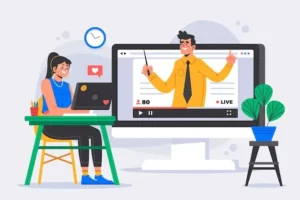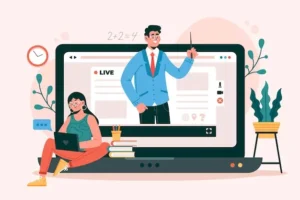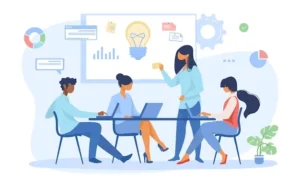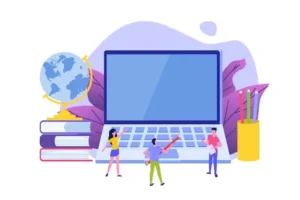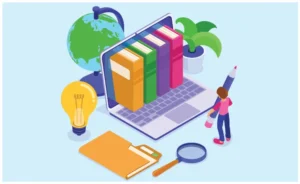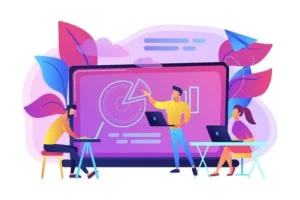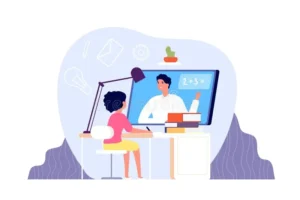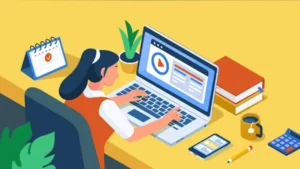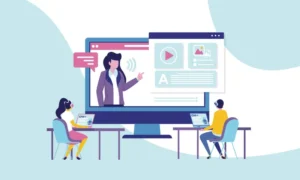Leading the Way: Universities Championing Accessibility in Online Education

Ensuring accessibility in online education is a fundamental step toward creating an inclusive learning environment. Several universities and institutions are leading the way in addressing the needs of students with disabilities. In this article, we will explore examples of higher education institutions that excel in promoting accessibility in online education, serving as models for others to follow.
- Harvard University
Harvard University has been at the forefront of accessibility initiatives. Its Accessibility@Harvard program provides resources for faculty and staff to create accessible online courses. The university offers a comprehensive guide for faculty on creating accessible documents, videos, and web content. Harvard’s commitment to accessibility extends to its open-access online courses, enabling learners worldwide to access high-quality educational materials.
- University of Washington
The University of Washington (UW) is a prime example of an institution dedicated to ensuring accessibility in online education. UW’s Accessible Technology Services (ATS) team collaborates with instructors to make course content accessible. They provide training and support for faculty and staff and offer guidance on captioning, transcription, and alternative formats for content.
- Stanford Online
Stanford University has shown its dedication to accessible online education through its online platform, Stanford Online. The platform offers a variety of courses and programs, including accessibility features such as captions and transcripts for videos, alternative text for images, and accessible design guidelines for course content. Stanford’s commitment to accessibility reflects its mission to provide education for all.
- Oregon State University
Oregon State University (OSU) stands out for its comprehensive accessibility efforts in online learning. OSU’s Ecampus, the university’s online education division, is deeply committed to ensuring course materials are accessible to all. Ecampus collaborates with faculty to create accessible content and provides training for instructors on best practices. OSU’s dedication to inclusivity has made its online programs accessible to a diverse range of students.
- Michigan State University
Michigan State University (MSU) has made substantial strides in enhancing accessibility in online courses. The university provides accessible templates for creating course content, guidance on captioning videos, and a robust accessibility toolkit for faculty. MSU’s dedication to accessibility is evident in its efforts to create a welcoming learning environment for all students.
- University of California, Berkeley
The University of California, Berkeley, has a history of promoting accessibility and inclusivity. Berkeley’s Online Learning Accessibility Program (OLAP) is a model for other institutions. OLAP collaborates with instructors to ensure that online courses are accessible, offering resources such as guidelines, checklists, and faculty training.
- University of Illinois Urbana-Champaign
The University of Illinois Urbana-Champaign is renowned for its contributions to accessibility in online education. The institution’s National Center on Accessible Educational Materials provides resources and tools for educators, including a vast repository of accessible educational materials. The university’s pioneering work has a broad impact on the accessibility of online education materials.
- Columbia University
Columbia University is another institution committed to accessibility in online education. The university’s Center for Teaching and Learning (CTL) offers resources and guidance to faculty on creating accessible online courses. Columbia’s CTL has helped instructors design content that is more inclusive and accessible for students.
- Purdue University
Purdue University has demonstrated its dedication to accessibility through the Purdue Online (Purdue Online Education) platform. The university offers a range of online programs and courses, all designed with accessibility in mind. Faculty at Purdue are supported through instructional design and technology services to ensure the accessibility of their course content.
- MIT OpenCourseWare
The Massachusetts Institute of Technology (MIT) is renowned for its MIT OpenCourseWare (OCW) initiative, which offers free online course materials from MIT’s courses. MIT OCW provides accessible content, including video captions and alternative text for images, ensuring that students with disabilities can benefit from these resources.
These examples highlight that universities and institutions are making significant strides in addressing the needs of students with disabilities in online education. They serve as models for other educational organizations to follow, showcasing how a commitment to accessibility benefits all students and creates a more inclusive online learning environment. By providing resources, training, and accessible materials, these institutions contribute to breaking down barriers and fostering equal access to quality education for all learners.

